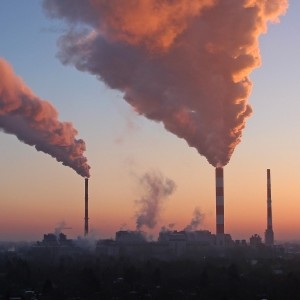5. Because it has been scientifically well established that there is a great risk of catastrophic harm from human-induced change (even though it is acknowledged that there are remaining uncertainties about timing and magnitude of climate change impacts), no high-emitting nation, sub-national government, organization, business, or individual of greenhouse gases may use some remaining scientific uncertainty about climate change impacts as an excuse for not reducing its emissions to its fair share of safe global greenhouse gas emission on the basis of scientific uncertainty. The duty to prevent great harm to others begins once a person is on notice that they are potentially causing great harm, not when the harm is absolutely proven.
6. Those nations, sub-national governments, organizations, businesses, and individuals that are emitting greenhouse gases above their fair share of safe global emissions have obligations, duties, and responsibilities for the costs of adaptation or damages to those who are harmed are will be harmed by climate change.
7. Given the magnitude of potential harms from climate change, those who make skeptical arguments against the mainstream scientific view on climate change have a duty to submit skeptical arguments to peer-review, acknowledge what is not in dispute about climate change science and not only focus on what is unknown, refrain from making specious claims about mainstream science of climate change such as the entire scientific basis for climate change has been completely debunked, and assume the burden of proof to show that emissions of greenhouse gases are benign.
8. Those nations or entities that have historically far exceeded their fair of safe global emissions have some responsibility for their historic emissions. Although the date at which responsibility for historic emissions is triggered is a matter about which different ethical theories may disagree, at the very latest nations have responsibility for their historical emissions on the date that they were on notice that excess greenhouse gas emissions were dangerous for others, not on the date that danger was proven.
9. In determining what is any nation’s fair share of safe global emissions, the nation must either assume that all humans have an equal right to use the atmosphere as a sink for greenhouse gases, or identify another allocation formula based upon morally relevant criteria. All nations have an ethical duty to explain why any deviation from per capita greenhouse gas emissions is ethically justified.
10. Some economic tools frequently used to evaluate public policy on climate change such as cost-benefit analysis that don’t acknowledge responsibility for allocating the burdens for reducing the threat of climate change on the basis of distributive justice are ethically problematic.
About the Author:
Donald A. Brown is Associate Professor of Environmental Ethics, Science and Law at Pennsylvania State University where he is currently teaching inter-disciplinary courses on climate change and sustainable development, and acting as Program Director of the Collaborative Program on the Ethical Dimensions of Climate Change whose secretariat is the Rock Ethics Institute at Penn State. Mr. Brown is also Director of the Pennsylvania Environmental Research Consortium, an organization comprised of 56 Pennsylvania universities and the Pennsylvania Departments of Environmental Protection and Conservation and Natural Resources.
Before holding these positions, he was an environmental lawyer for the states of Pennsylvania & New Jersey and Program Manager for United Nations Organizations at the United States Environmental Protection Agency’s Office of International Environmental Policy. Mr. Brown has written about and lectured extensively on climate change issues over the last 20 years. His interest has been the need to integrate environmental science, economic, and law in environmental policy making.












